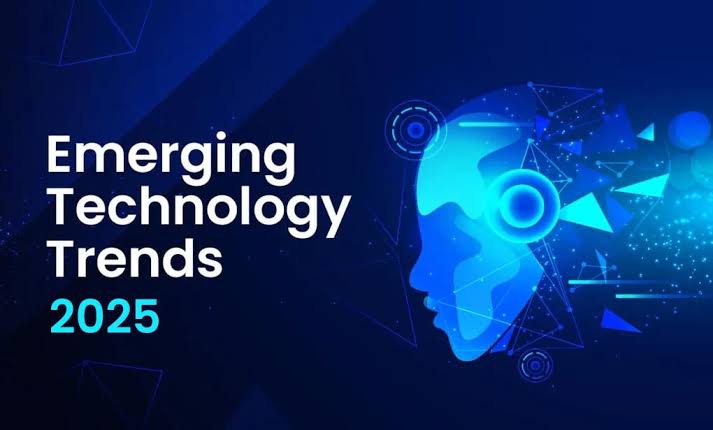Technology is evolving at an unprecedented pace, transforming the way we work, live, and connect. What once took decades to develop is now happening in a matter of years, with innovations rapidly moving from concept to everyday reality. Understanding these emerging trends is essential for individuals, businesses, and governments looking to adapt to the changing digital landscape.
The future of tech is not about one single breakthrough but rather the combination of multiple innovations working together to reshape industries and societies. From artificial intelligence to sustainable energy solutions, these developments are redefining what’s possible.
Artificial Intelligence and Machine Learning Advancements
Artificial intelligence (AI) is no longer just a tool for automation—it’s becoming a decision-making partner. Modern AI models can analyze massive amounts of data, make predictions, and even generate creative solutions. Machine learning, a core part of AI, enables systems to improve over time without explicit programming.
Key developments include:
- AI-powered business analytics that provide real-time decision-making insights.
- Natural language processing systems capable of understanding and generating human-like responses.
- Computer vision applications for healthcare, security, and manufacturing.
The integration of AI into everyday tools is making processes faster, smarter, and more cost-effective.
Quantum Computing Breakthroughs
Quantum computing has the potential to outperform traditional computers in solving highly complex problems. While still in its early stages, recent advancements are making quantum technology more stable and scalable.
Potential applications include:
- Drug discovery through rapid molecular modeling.
- Optimization of supply chain logistics.
- Advanced financial modeling and fraud detection.
As quantum computing moves toward commercial viability, industries dealing with vast amounts of data stand to benefit significantly.
Expansion of the Internet of Things (IoT)
IoT is creating a hyper-connected world where everyday objects collect and share data. From smart home devices to industrial sensors, IoT technology is enabling automation and real-time monitoring.
Emerging IoT trends involve:
- Smart cities with connected infrastructure for traffic, waste, and energy management.
- Wearable health monitors that provide continuous patient data to doctors.
- Predictive maintenance systems in manufacturing that reduce downtime.
The combination of IoT with AI is making these systems even more intelligent and efficient.
5G and the Rise of 6G Research
5G technology is already improving connectivity with faster speeds and lower latency, enabling innovations such as autonomous vehicles, immersive gaming, and advanced telemedicine.
The next step, 6G research, is focusing on:
- Speeds up to 100 times faster than 5G.
- Integration of satellite networks for global coverage.
- Enhanced virtual and augmented reality experiences.
This leap in connectivity will make it possible for new technologies to operate seamlessly in real time.
Renewable Energy and Green Tech Innovations
Sustainability is becoming a major driving force in technology development. Innovations in renewable energy, energy storage, and eco-friendly materials are helping reduce environmental impact.
Key advancements include:
- Solar panel efficiency improvements and cost reductions.
- Large-scale battery storage for renewable energy grids.
- Smart energy management systems for homes and businesses.
Green technology is not only addressing climate change but also creating new economic opportunities.
Virtual Reality (VR) and Augmented Reality (AR) Growth
Immersive technologies are moving beyond entertainment into areas like education, healthcare, and workforce training. VR offers fully simulated environments, while AR overlays digital information onto the real world.
Future developments may include:
- VR-based classrooms offering global access to high-quality education.
- AR-assisted surgery for enhanced precision in medical procedures.
- Virtual workplaces where remote teams interact in 3D environments.
The growth of these technologies will make learning, training, and collaboration more interactive and engaging.
Blockchain Beyond Cryptocurrency
Blockchain technology is evolving from a cryptocurrency foundation to broader applications in security, transparency, and decentralized systems.
Notable uses include:
- Secure supply chain tracking for authenticity verification.
- Digital identity management to protect personal data.
- Smart contracts that automate business agreements.
With increasing concerns about trust and transparency, blockchain solutions are gaining traction in multiple sectors.
Cybersecurity Innovation and AI-Driven Defense
As technology advances, cyber threats are becoming more sophisticated. Businesses and governments are investing in AI-driven cybersecurity to detect and neutralize threats faster.
Key focus areas include:
- Predictive threat analysis using machine learning.
- Automated response systems that limit attack damage.
- Zero-trust security frameworks for better access control.
Cybersecurity will remain at the forefront of tech innovation as digital threats continue to evolve.
Edge Computing and Real-Time Processing
Edge computing moves data processing closer to where it’s generated, reducing latency and improving efficiency. This is crucial for applications that require instant decision-making.
Examples include:
- Autonomous vehicles processing sensor data on-board.
- Industrial IoT systems managing operations in real time.
- Smart retail systems providing personalized offers instantly.
Combining edge computing with AI will unlock even more powerful real-time capabilities.
Conclusion
The future of technology is being shaped by interconnected innovations that are changing how we work, communicate, and solve problems. Artificial intelligence, quantum computing, IoT, and sustainable solutions are at the center of this transformation, supported by advancements in connectivity, immersive experiences, and security.
As these trends evolve, the challenge will be to adopt them responsibly—balancing innovation with ethical considerations and long-term sustainability. Those who understand and adapt to these changes will be best positioned to thrive in the tech-driven future.




12 thoughts on “The Future of Tech: Emerging Trends Now”